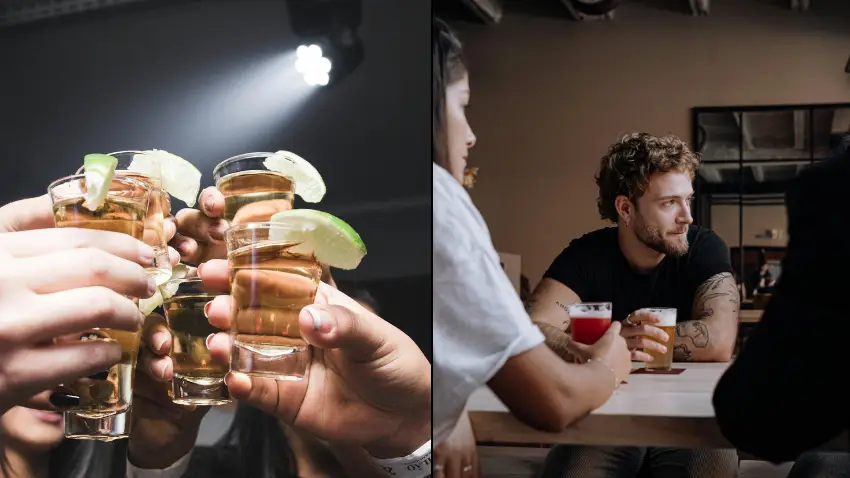
Experts have warned of six key signs that could mean you need to cut down your alcohol intake, and there could be some that you've completely normalised in your life.
Alcohol is a big part of our social lives - especially for us Brits - and if you’ve ever completed a dry Jan, you’ll know just how hard it can be to avoid giving into temptation.
Especially with the Euro summer we’re about to have - a lot of beer is involved.
However, an expert has warned of six red flags to look out for which could indicate you need to be thinking about decreasing the booze a little.
Advert
The 2019 NHS Health Survey for England found that 48 percent of adults reported drinking alcohol at least once a week.
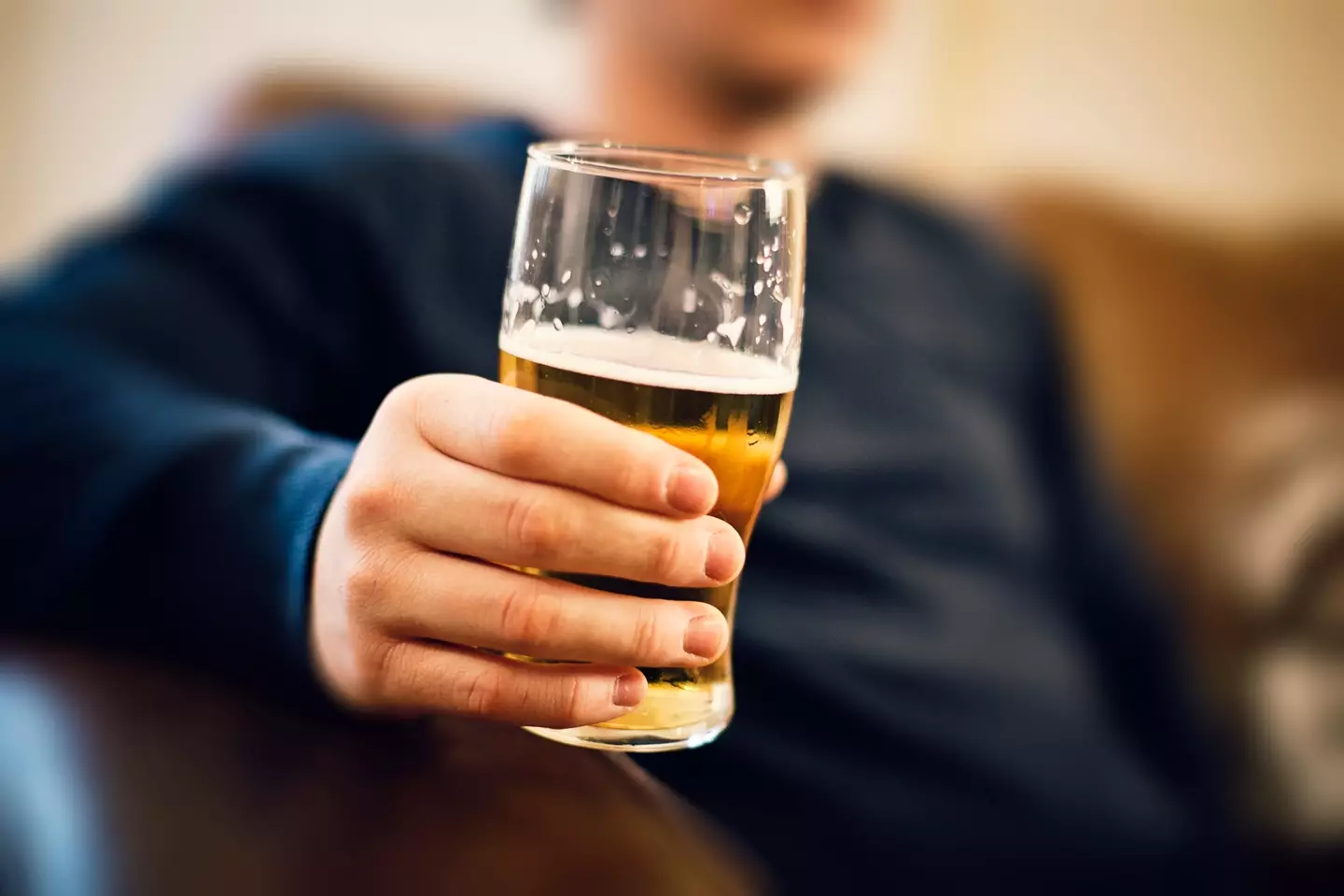
And a 2021 NHS survey, found that 36 percent of people aged 55-64 drank more than the recommended maximum of 14 units per week.
Anna Sudbury, a therapist and an accredited sobriety coach, believes many of us are in denial about how much we actually drink.
Talking to the Telegraph, she noted how easy it is for excessive amounts of alcohol consumption to become normal, especially if those around you do it too.
She said: “It’s so easy to underestimate, especially with large glasses or double measures as standard.
“We also judge our drinking by those around us.

“If everyone is getting stuck into the third bottle of red, then it’s easy to justify.
“But that doesn’t mean it’s healthy.”
So as it turns out we are a nation which likes a drink, but what are the signs we should be looking out for to give it a rest?
Anna noted that you don’t need to tick all six of these to qualify.
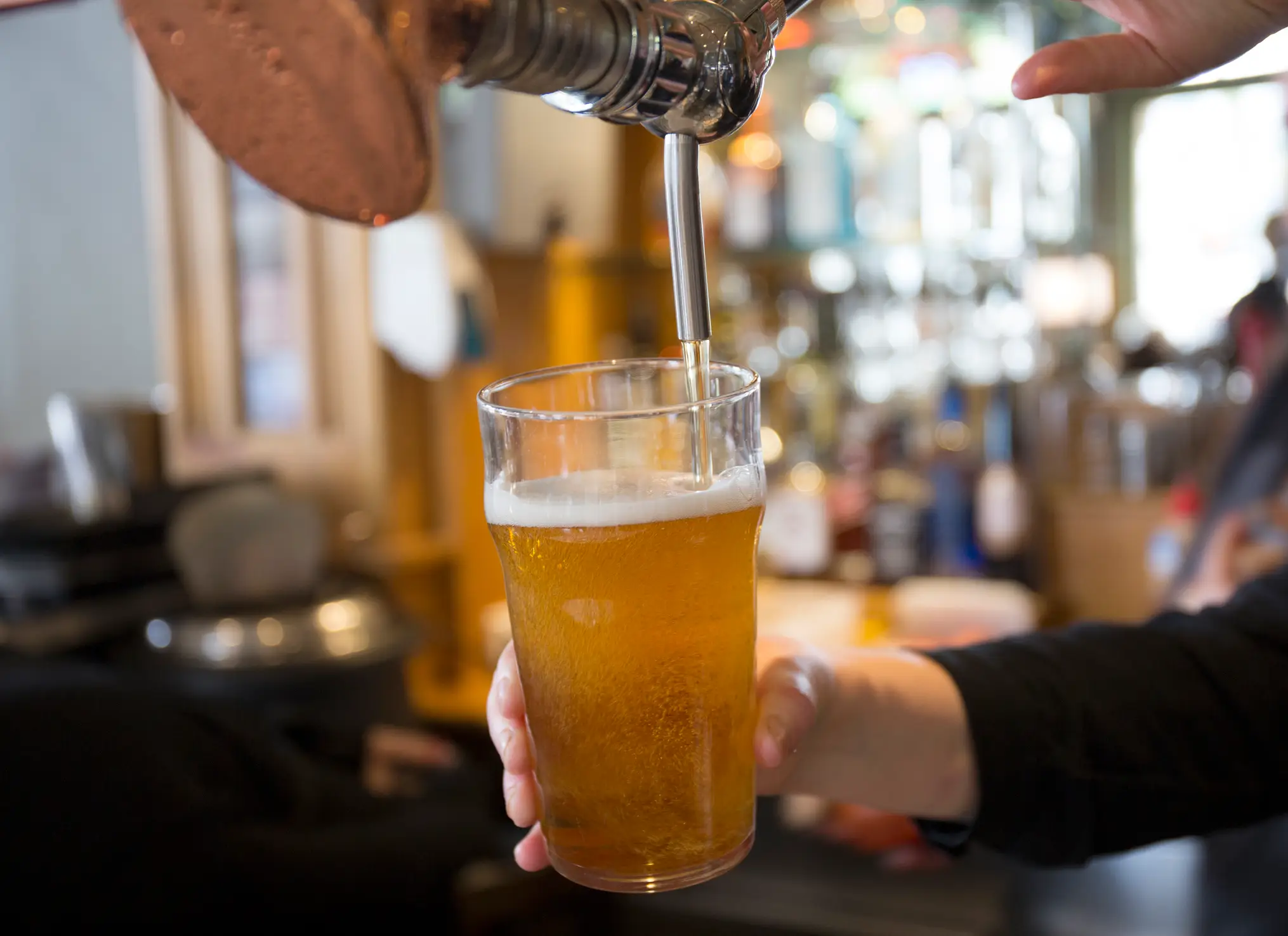
Poor decision making
Whether that's walking home drunk, getting into fights or even partaking in 'blackout' shopping sprees online, it could be time to reduce the booze.
We've all took it too far before, but if you're regularly making questionable decisions while on the sesh, it could be something to think about.
“If alcohol has become the reason you do or don’t do something, then it’s an indicator that it’s time to review your relationship with it,” sobriety therapist Patrick Fox said.
You’re not functioning at your best
It might sound like a given but you can end up getting so used to the feeling of being hungover that you completely normalise feeling sub-par - and might not have even put two and two together.
Whether that's feeling tired and sluggish, barely scraping by at work or generally just slumping around, the booze could be affecting you more than you think.
According to experts, it's a cycle that can keep you trapped as you still feel as though you're 'functioning' to some degree.
“We all know about the post-alcohol anxiety that’s often a result of drinking,” psychotherapist Laura Drane. “This combination can create a destructive cycle of ‘drinking to feel better’, which is only exacerbating the problem.”
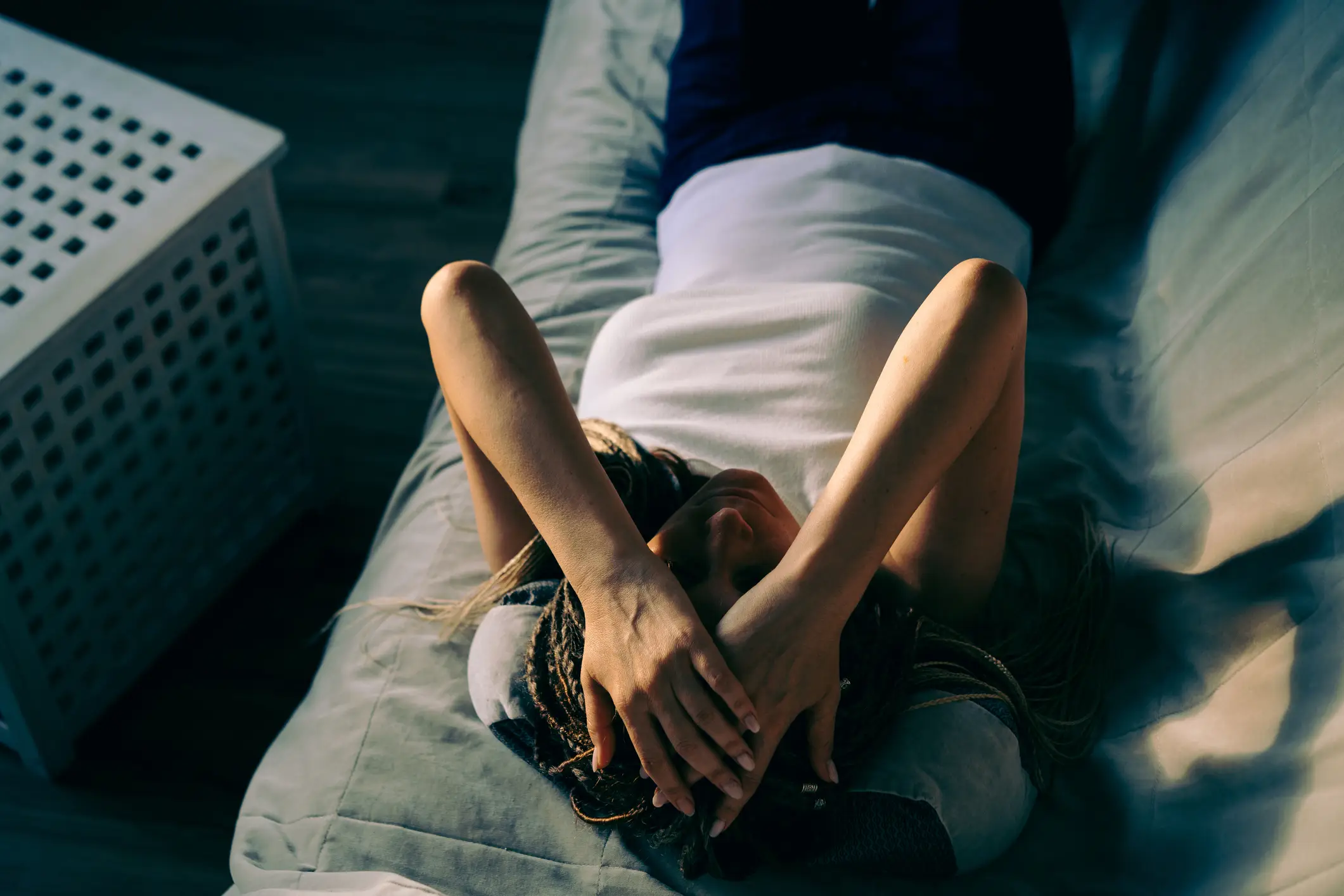
You've noticed health problems
Alcohol can have serious affects on both your physical and mental health.
Navin Khosla, pharmacist at Now Patient a telehealth and online pharmacy, explained: “The body needs a variety of ‘good’ bacteria in its intestine to allow the immune system to work effectively.
“However, alcohol can impact the number and variety of these bacteria, resulting in a weaker immune system.
"Alcohol can slow down how your brain processes information, which can lead to negative thoughts and feelings, and chemical changes leading to periods of anxiety and low mood.”
You struggle to call time on the party
One of the biggest signs to look out for it being unable to moderate your drinking, and struggling to stop once you start.
Your mates may be able to call it a night after a few but you have to drink to get drunk every time and struggle to know when to call the taxi home.
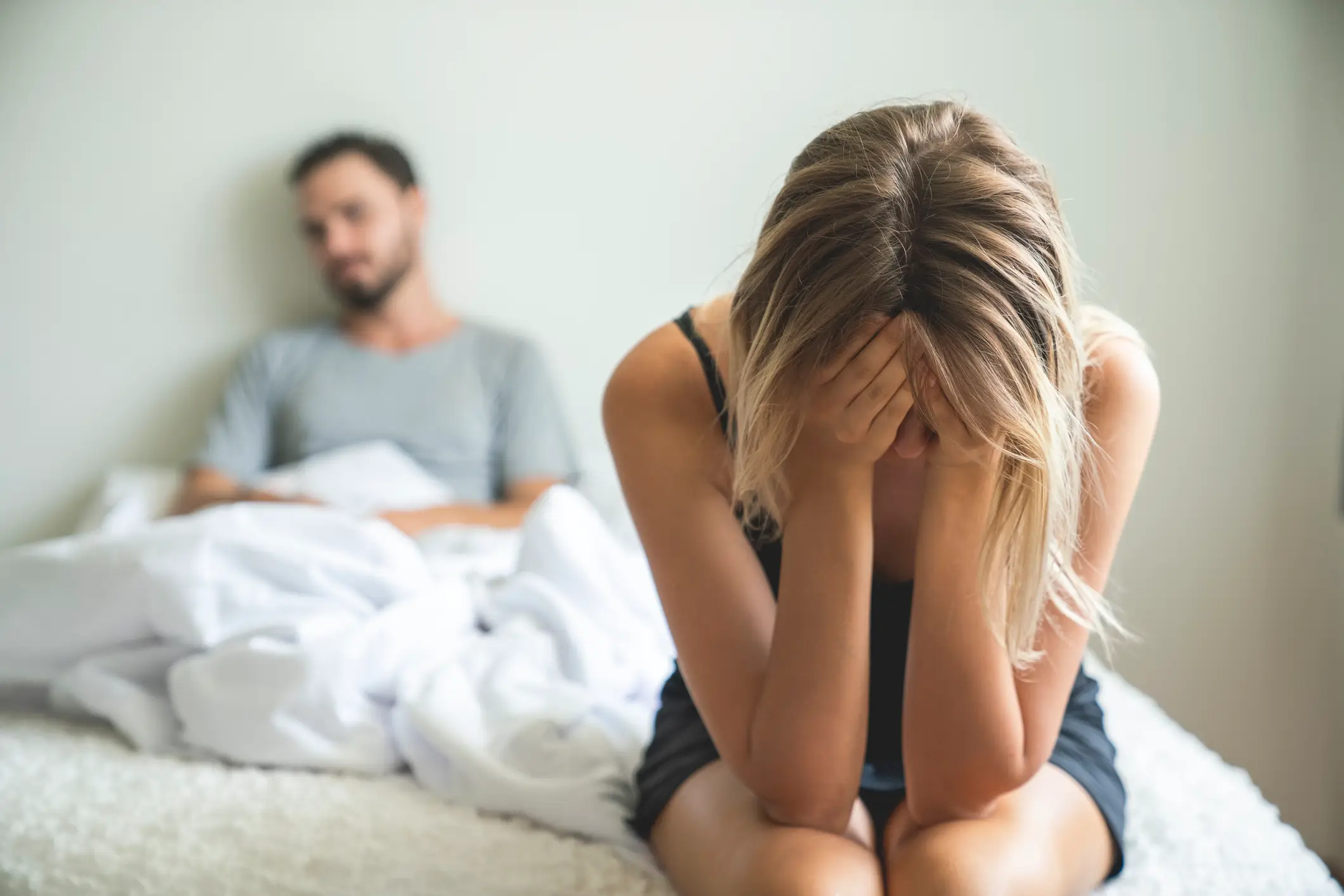
Relationships
From your sex drive to drunken arguments, it's no secret that getting on the bevs excessively can put a strain on the relationships in your life.
Not only that but alcohol impairs your judgement and problem solving skills which is a recipe for disaster if you're frequently taking it too far.
Necking your drink
Once you start chasing the feel-good buzz of the booze, it can be tempting to neck your drink to get drunk as quick as possible.
If you've noticed you're regularly drinking faster than your mates, it might be time to reflect on your relationship with alcohol.
Of course, only a medical professional can diagnose alcohol dependence and if you're worried about your drinking habits, book an appointment with your GP.
Please drink responsibly. If you want to discuss any issues relating to alcohol in confidence, contact Drinkline on 0300 123 1110, 9am–8pm weekdays and 11am–4pm weekends for advice and support.
Topics: Food And Drink, Alcohol, Mental Health